SEE ALSO » More Stories From Veterans • Tell Me About PTSD
For those that served in the Global War on Terror, the experiences abroad were as different as those that they faced upon retiring from active duty. For many, they were forced to confront a new reality – one without the structure nor the support of their fellow soldiers. Hear stories of transitioning from military to civilian life, of dealing with hardship, despair, suicidal thoughts, addiction and recovery.
Here are their stories…
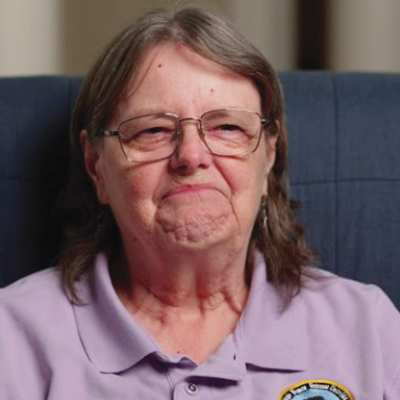 BRENDA BRUBAKER
BRENDA BRUBAKER
Retired U.S. Navy Nurse
“First thing we have to do is ask the question. We have to ask, and we don’t ask, Have you ever thought of maybe someday hurting yourself? You ask, Are you considering suicide? Do you have a way to do it? What stops you from doing it? What do you want us to do for you? Asking those really hard questions and then finding the answers for them. If I have somebody that tells me, right here, I have a gun, it’s out in my car, and I intend to go use it. What can I do to stop that individual? I can call for help. I can walk them to another room. I can do all sorts of things to prevent them, or at least if they’re saying it, if they’re getting it out, that’s one more step to helping them.”
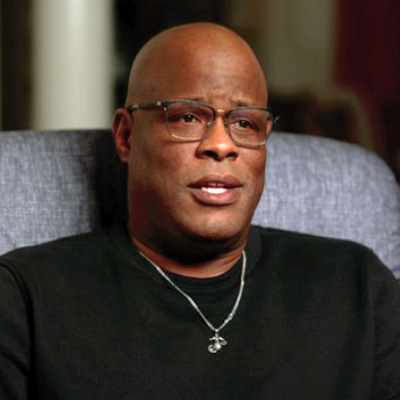 DUANE CALVIN
DUANE CALVIN
Former U.S. Marine Corps Staff Sergeant
“Being in the Marines was harder than I could have ever imagined. Yeah, it actually was quite difficult. The Marine Corps physical standard is super high. And so that was as difficult as I thought it would be. But what was probably more difficult was the long times away from family. Being deployed is just tough. Trying to navigate life in a culture like that is really challenging in general. But I think the deployments made it much, much harder.”
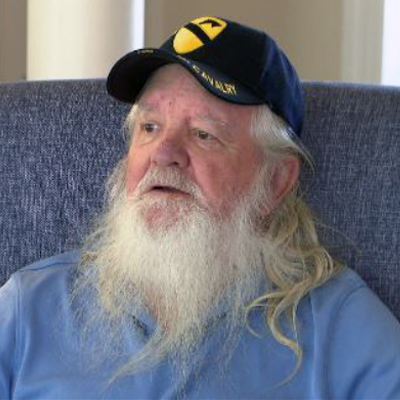 BOB CARTER
BOB CARTER
Former U.S. Army Corporal
“Well, first of all, they’re not benefits. We earned them. We earned everything, and they didn’t give us anything. You put your life on the line. … The day that I was wounded, I could have been killed. I came that close to it. So when they call them benefits, a benefit is something somebody just plain gives to you. We earned it.”
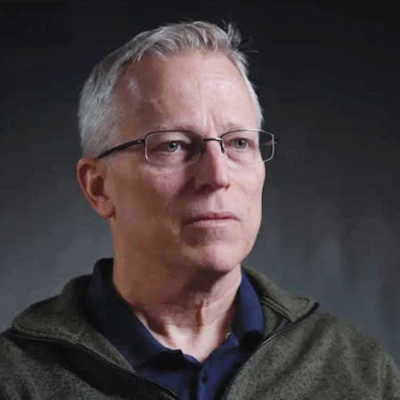 STEVE CLINE
STEVE CLINE
U.S. Army Master Sergeant (retired)
“For me, the stress that comes in a combat situation comes with faith, faith in my God, faith in those that I’m serving, faith in the mission that was before us, and knowing that there’s something that is worth fighting for, something to include worth dying for. And typically, that is that person that is there to your left and to your right. And so when you are outside of yourself, and what I mean by that is when you are thinking of others more than yourself, there’s a fulfillment that comes with that in my mind.”
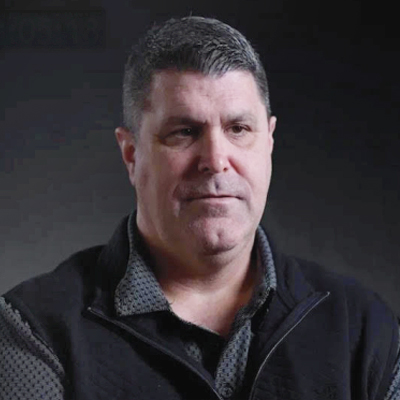 JASON DUNHAM
JASON DUNHAM
Retired U.S. Marine Corps Master Sergeant
“There’s eight Marines that live in the back of my mind today. We weren’t able to bring them home. It’s just the realities of war. And those are sacrifices that we accept. Those are sacrifices that we’re forced to live with for the rest of our days. I look at my family, and then you follow their families on Facebook, and you want the same thing that you have for your family, but you realize that child is growing up without their father. There’s a wife who no longer has a husband. So the guilt is what you take with you when you are far away from the war zone.”
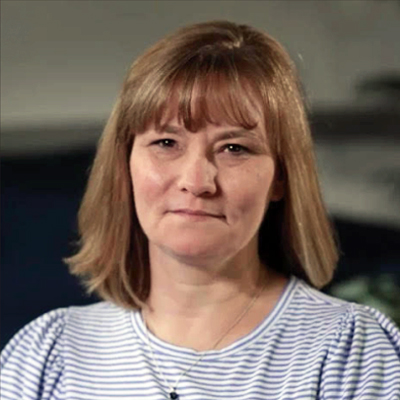 MRS. MELINDA DUNHAM
MRS. MELINDA DUNHAM
Wife of Marine Master Sergeant Jason Dunham
“I think it was the third night that he was home. We were lying in bed together, sound asleep, and all of a sudden, he jumped up out of bed, and he started reaching for his gun on his hip. And he was scared. He was looking around. It was dark in the bedroom, and I yelled to him. I’m like, “Jason, Jason, it’s me. It’s your wife. I’m right here.” And then he came to and he was like, “Oh, okay.” And he apologized. And I knew right away we were going to be dealing with some issues.”
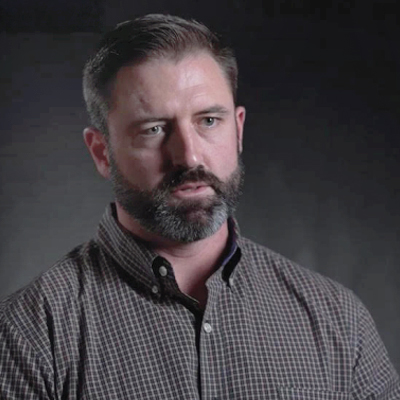 TRE GRISSOM
TRE GRISSOM
Former U.S. Marine Corps Captain
“Serving my country was something that means really everything. I mean, there’s no more meaningful thing that I could do, and I still say it’s the best job I’ve ever had, right? To be able to wear the uniform and go out and lead Marines, whether it’s in garrison or in field training or over in combat, ask them whatever was asked of us.”
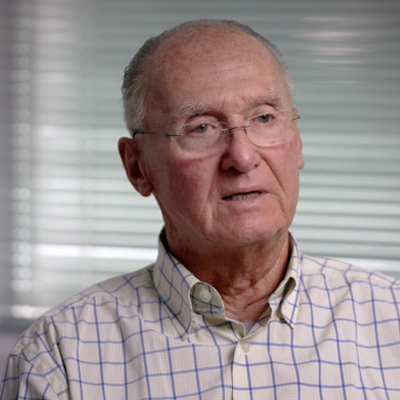 HOWIE FRANKLIN
HOWIE FRANKLIN
U.S. Air Force Chief Master Sergeant (retired)
“I’m a former Vietnam veteran, and I witnessed (PTSD), but witnessing the current things with the young boys coming back and girls, if you haven’t witnessed anxiety attacks with somebody, it’s really scary… My son had PTSD… I saw him on edge. I saw him when he walks in a room. If he walked into a restaurant, he puts his back to the wall. He doesn’t like crowds. He doesn’t want to be with people. If he went to church, he wants to be in the back of the room. That’s a complete 180 compared to what he was when he went in the service. He was very outgoing. He was a football star. He was active in stage shows and things of this nature, very outgoing, and he’s 180 completely…”
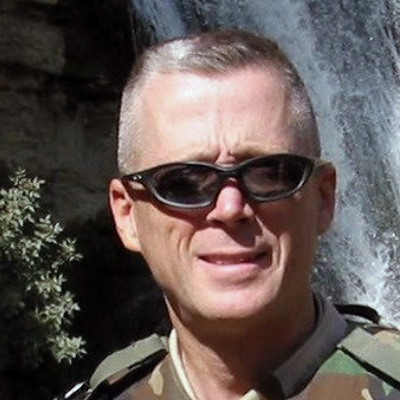 JEFF HICKS
JEFF HICKS
U.S. Navy Commander (retired)
“I never witnessed cowardice during a combat situation. You have had so much training that you do what you are trained to do and what you have to do. Combat engagements usually are very short. When it is over you are so hyped up that it takes a while to return to normal. One thing that happened a lot of times would be that we cleaned our weapons together. That meant the combat was over for now. It was a time we could talk on decompress.”
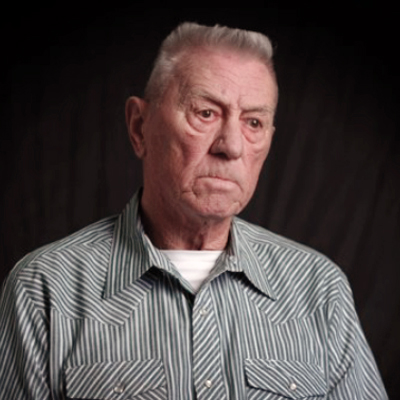 JOSEPH HOULE
JOSEPH HOULE
U.S. Marine Corps Sergeant Major (retired)
“When I got out of the Marine Corps first time, I did have some problems because people didn’t like me, number one. Why? Because I was claimed a baby killer and stuff in Vietnam. I was over there, of course, as the American people I know that it wasn’t a popular place to be during that time. I did have some problems with noise. … I would have some nightmares. I’d wake up, wouldn’t be able to move, petrified in bed, noises and things like that… What I did to help myself … was I come back in the Marine Corps.”
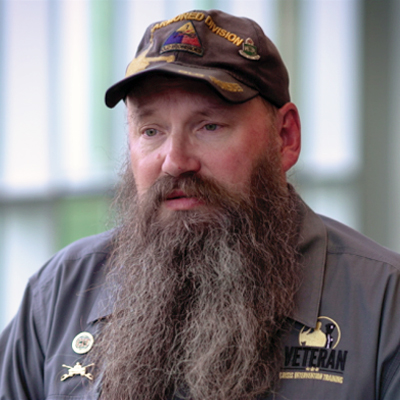 GORDON JEANS
GORDON JEANS
Retired U.S. Army Sergeant
“The way I see it, you made it home, so that was supposed to be the hard part, and it’s not, apparently, for a lot of people. We have a struggle out here between who we were raised to be and who we were trained to be. And then we have a culture dynamic that it’s a total shift, too. When you’re in, if you have a problem, you have a first sergeant, platoon sergeant, sergeant major, somebody in that chain knows how to help, and they will not just tell you about it. They’re going to grab you by the collar and get it fixed now so it doesn’t drag out…because we want those minds focused on the job at hand. Out here, something goes wrong and you don’t really have a network. What do you do now?”
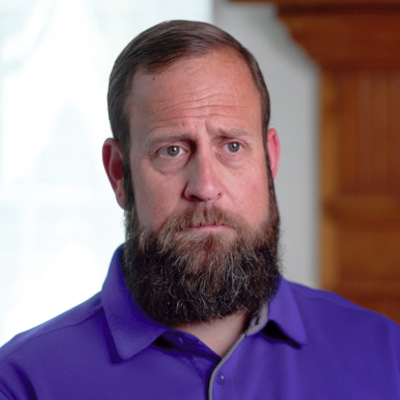 JEREMY JOHNSON
JEREMY JOHNSON
Former U.S. Army Staff Sergeant
“During deployment, veterans see all kinds. They see the worst of the worst. Unfortunately, you are trained to deal with that to a certain extent, and that does help. But you bring all that baggage back with you to the real world, if you want to call it that. And, you know, people continue to deal with that their whole lives.”
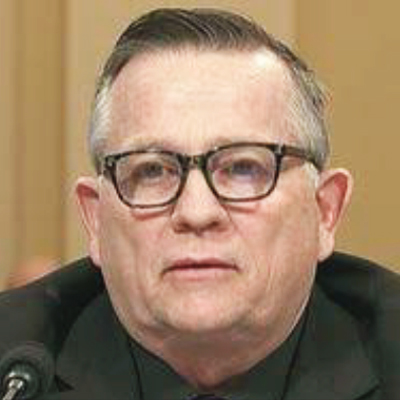 JAMES MCCORMICK
JAMES MCCORMICK
U.S. Army Captain (retired)
“But it was a hell of a mess when we got back to where we were going because there were hundreds, if not thousands of people and parts of people that were just everywhere. I mean, people literally still on fire when you come up in there. That whole experience, I always say it’s reminiscent of a monster movie, but real-time. That was the Desert Storm experience. Going into bunkers and capturing the Iraqis, getting on a radio and calling for fire. We all train for that stuff. But when it really happens and you’re calling Red Leg, which is the artillery, and they’re dropping DPICM on a target that’s 200 meters to in the front.”
When that shell explodes over all these people, it drops all these bomblets, and it’s like all across the ground, and it shakes and rattles your teeth. I mean, it’s those things you remember.”
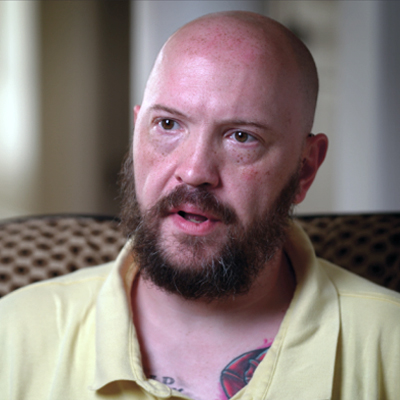 RICHARD MOODY
RICHARD MOODY
Retired U.S. Air Force Staff Sergeant
“My PTSD worsened when I started to lose interest in things. I had anger outbursts. My heart was pounding. I was sweating. I was waking up with night terrors. And things that would trigger it would be large crowds, loud noises, such as fireworks or something like that.”
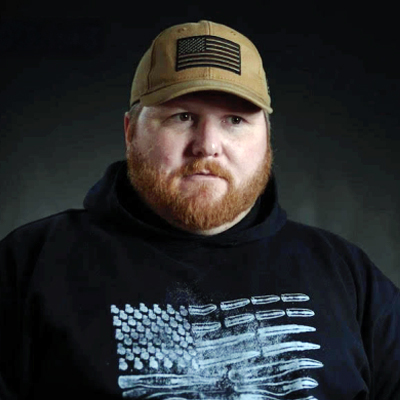 MATHEW PEDONE
MATHEW PEDONE
Former U.S. Army Sergeant E5
“Well, 9/11 happened right after I graduated high school. I graduated in 2001. Actually, September 11th is my mom’s birthday, and we were out eating and we were talking. I told them then that I was going to go down and try to join the Air Force because I absolutely hated the whole idea that we were attacked on our own soil.”
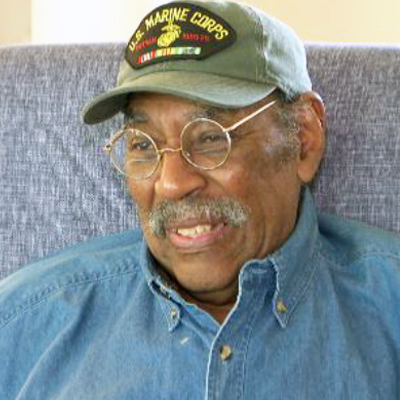 LEONARD PEEBLES
LEONARD PEEBLES
Former U.S. Marines Sergeant
“What I think is a lot of times that veterans get frustrated because the VA is not working fast enough for them. I didn’t have that problem when I did mine, and I stuck with the VA from 1970 all the way up to today. My (disability) was at 20% when I first started, back 1970. Then I got an increase, then it moved up to 30%, then from there on up to 100. I was just given 100% four years ago. I was at 90% for, I think, about 10 or 12 years.”
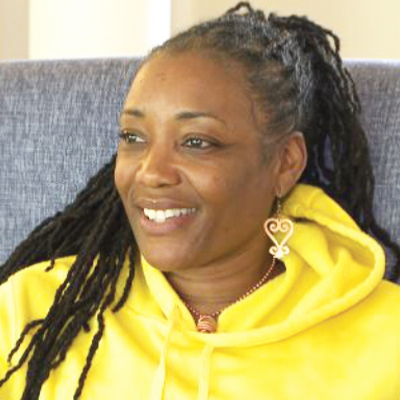 MONIQUE ROBINSON
MONIQUE ROBINSON
Former U.S. Army Spec 4
“The first couple of times that I went to the vet center, I tried to explain it as if it was a cortisone shot. It hurts. The initial shot hurts. But as you keep going, you realize that I’m going to be okay. especially with the support that they give. I knew that I would be okay.”
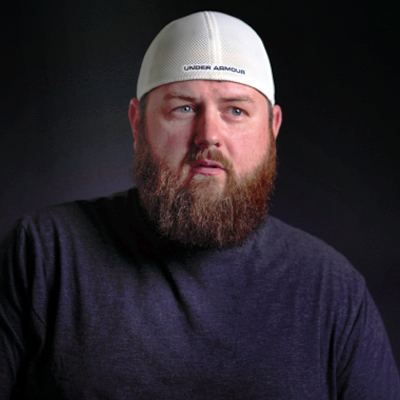 JOHN ROWLEY
JOHN ROWLEY
Retired U.S. Army Specialist 4
“And I was like, I’m not gonna be a statistic. So, I quit drinking for a long time, and I found other very unhealthy ways to cope with my anger … I didn’t know if I was gonna make it through that part. At one point I was driving my motorcycle, and I was just, everything in my life was going bad. I just lost my job. I was going through a divorce… And I’m just like, I was riding my motorcycle, and I was like, there’s a tractor trailer coming at me. And I was just like, it’d be so much easier if I just drove in front of this tractor trailer. And then I stopped, and I was just like, I can’t. I can’t do that. I got two kids. Immediately, I drove to the VA and talked to somebody.”
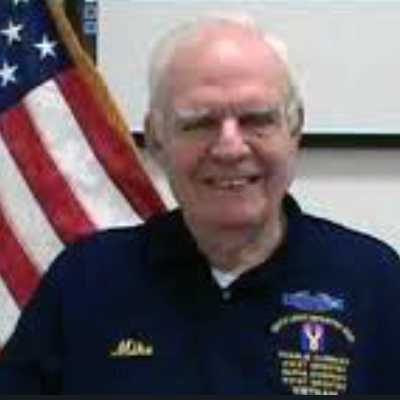 MICHAEL T RUANE
MICHAEL T RUANE
U.S. Army Colonel (retired)
“One of the stumbling blocks for a lot of veterans is that we think we ought to be able to handle (PTSD). If I can handle combat, I can handle this. Uhh, no.”
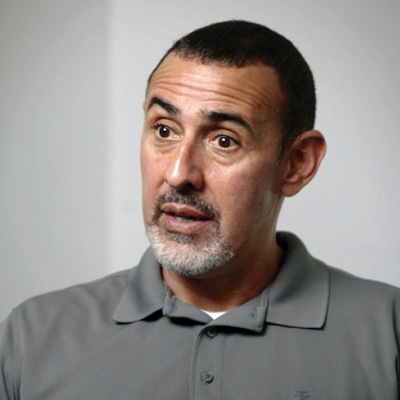 ROBERT TELLEZ
ROBERT TELLEZ
U.S. Marine Corps Master Sergeant (retired)
“I have lost track of the number of service members that I’ve met or been acquainted with or have had knowledge of that have committed suicide. Recently, within the past two and a half months, a general, a sergeant major, a master sergeant, a gunnery sergeant, all that I’ve shaken hands with and been equated with, have killed themselves.”
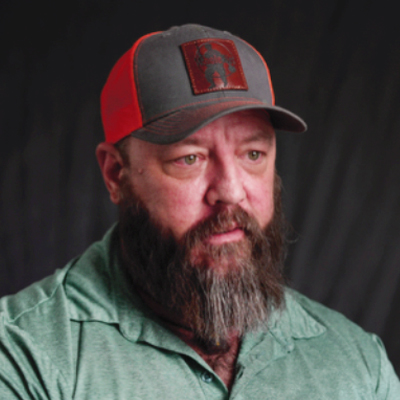 JEREMY THRANE
JEREMY THRANE
U.S. Marine Corps Master Sergeant (retired)
“I think we’ve gotten too far into the PC side of things that we’re focusing on the wrong things. We need to get back to the roots of the internal garrison side of the military does not need to be a nice place. It needs to be a hard place where you learn to thrive. If you can thrive and be resilient in a hardened environment, then when you find yourself dealing with the strife that combat brings, you are much more likely to come out of it with some resiliency and some stability, both physically and mentally.”
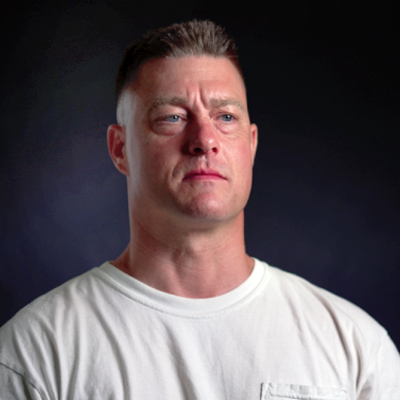 BRANDON TOUCHON
BRANDON TOUCHON
Retired U.S. Air Force Airman First Class
“What was being deployed like? It was like. It was a little bit like what I thought maybe being in prison was like. You know, it feels like the world is carrying on without you for months and months at a time. And I remember feeling lucky and unlucky all the time. I know army personnel pretty frequently would tell me about their experience being deployed for eleven months at the time and going home for two weeks and then being redeployed. And our rotations were anywhere from three to five months. So at least being deployed helped me figure out the difference between want and need. It gave me a lot of personal insight about that.”
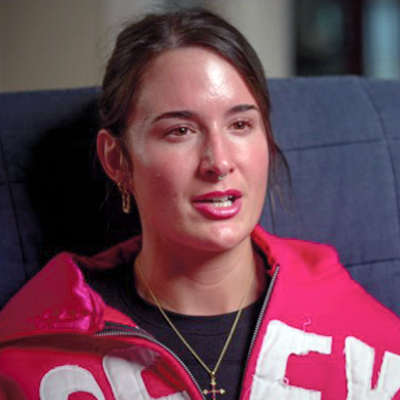 KEELY WAGNER
KEELY WAGNER
Former U.S. Army Specialist
“I would say the most challenging part of my deployment was being away from my family, your support system. I still had a form of contact with them, but you really feel so alone out there. Sometimes And some days are scarier than others and not being able to really talk to someone about it that I feel like you have that connection with.”
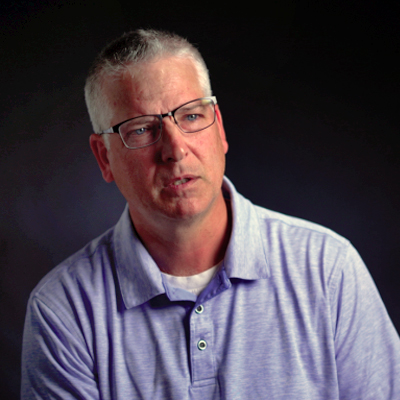 CHP WATSON
CHP WATSON
U.S. Navy Chief Petty Officer (retired)
“I did feel in danger when I was deployed in Afghanistan. You have people over there who want all Americans dead. So, yeah, there’s a hint of danger there. But that danger also keeps you on guard. You don’t get complacent. It keeps you on guard. It makes you aware of where you are, what you’re doing and why you’re doing it.”
» Read more stories…
Documentary participants share more insights into the challenges they faced. Read more from Brandon Touchon, Chip Watson, Steve Cline, Matthew Pedone, John Rowley, Jason Dunham, Trey Grissom, Jeremy Johnson, and Gordon Deans.